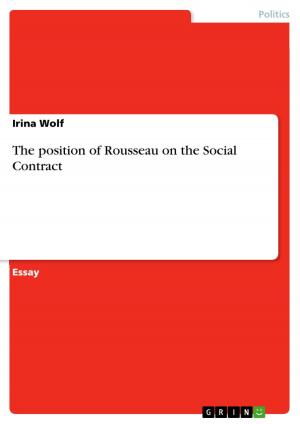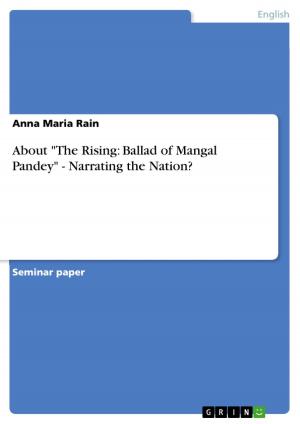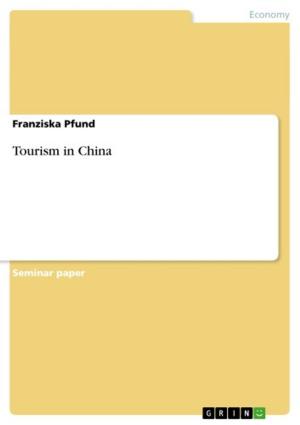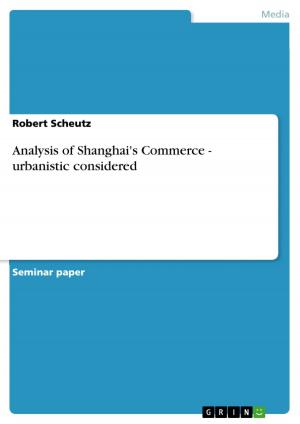Economic, environmental & socio-cultural impacts of tourism: An analysis from Mexico
Business & Finance, Industries & Professions, Hospitality, Tourism & Travel| Author: | Nadine Poser | ISBN: | 9783640189069 |
| Publisher: | GRIN Publishing | Publication: | October 15, 2008 |
| Imprint: | GRIN Publishing | Language: | English |
| Author: | Nadine Poser |
| ISBN: | 9783640189069 |
| Publisher: | GRIN Publishing |
| Publication: | October 15, 2008 |
| Imprint: | GRIN Publishing |
| Language: | English |
Seminar paper from the year 2008 in the subject Tourism, grade: A, Ecole hôtelière de Lausanne (The Emirates Academy), course: TOUR310, 19 entries in the bibliography, language: English, abstract: Tourism industry has evolved to a leading economic factor for many countries. According to the World Tourism Organization, tourists are people who 'travel to and stay in places outside their usual environment for not more than one consecutive year for leisure, business and other purposes not related to the exercise of an activity remunerated from within the place visited' (UNWTO, 2007). The agency examined that there were over 846 million international tourist arrivals in 2006. The industry has become essential for many countries. Tourism generates different kinds of revenue that can contribute to the host country's welfare. Further, with the development of resorts, jobs are created in sectors directly or indirectly related to tourism such as transportation, accommodation and entertainment services. The following report investigates economic, environmental and socio-cultural impacts in Mexico caused by the tourism industry. Positive as well as negative influences will be investigated. Furthermore, the paper will have a special focus on Cancún, a mega resort built by a governmental agency within only a few years. Mexico accounts to the leading tourism destinations among developing countries. Despite its wonderful beaches and the different kinds of activities such as water sports, deep-sea fishing, diving Mexico offers a wide range of culture and history. Ancient Maya sites, for example Tulum or Chichen Itza being the most popular attraction with tourists.
Seminar paper from the year 2008 in the subject Tourism, grade: A, Ecole hôtelière de Lausanne (The Emirates Academy), course: TOUR310, 19 entries in the bibliography, language: English, abstract: Tourism industry has evolved to a leading economic factor for many countries. According to the World Tourism Organization, tourists are people who 'travel to and stay in places outside their usual environment for not more than one consecutive year for leisure, business and other purposes not related to the exercise of an activity remunerated from within the place visited' (UNWTO, 2007). The agency examined that there were over 846 million international tourist arrivals in 2006. The industry has become essential for many countries. Tourism generates different kinds of revenue that can contribute to the host country's welfare. Further, with the development of resorts, jobs are created in sectors directly or indirectly related to tourism such as transportation, accommodation and entertainment services. The following report investigates economic, environmental and socio-cultural impacts in Mexico caused by the tourism industry. Positive as well as negative influences will be investigated. Furthermore, the paper will have a special focus on Cancún, a mega resort built by a governmental agency within only a few years. Mexico accounts to the leading tourism destinations among developing countries. Despite its wonderful beaches and the different kinds of activities such as water sports, deep-sea fishing, diving Mexico offers a wide range of culture and history. Ancient Maya sites, for example Tulum or Chichen Itza being the most popular attraction with tourists.















